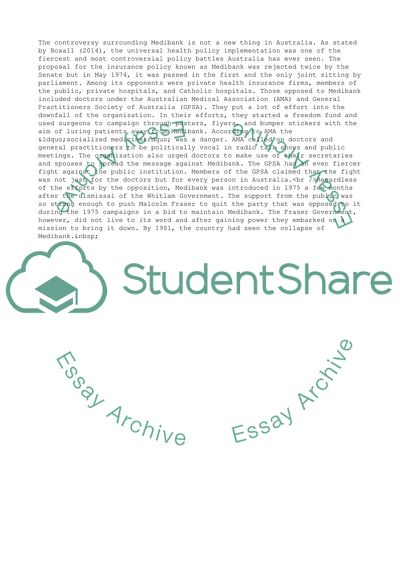Cite this document
(Should the Australian Government Privatize Medibank Essay Example | Topics and Well Written Essays - 1500 words, n.d.)
Should the Australian Government Privatize Medibank Essay Example | Topics and Well Written Essays - 1500 words. https://studentshare.org/business/1825230-summative-academic-essay-subject-government-business-relations
Should the Australian Government Privatize Medibank Essay Example | Topics and Well Written Essays - 1500 words. https://studentshare.org/business/1825230-summative-academic-essay-subject-government-business-relations
(Should the Australian Government Privatize Medibank Essay Example | Topics and Well Written Essays - 1500 Words)
Should the Australian Government Privatize Medibank Essay Example | Topics and Well Written Essays - 1500 Words. https://studentshare.org/business/1825230-summative-academic-essay-subject-government-business-relations.
Should the Australian Government Privatize Medibank Essay Example | Topics and Well Written Essays - 1500 Words. https://studentshare.org/business/1825230-summative-academic-essay-subject-government-business-relations.
“Should the Australian Government Privatize Medibank Essay Example | Topics and Well Written Essays - 1500 Words”. https://studentshare.org/business/1825230-summative-academic-essay-subject-government-business-relations.


